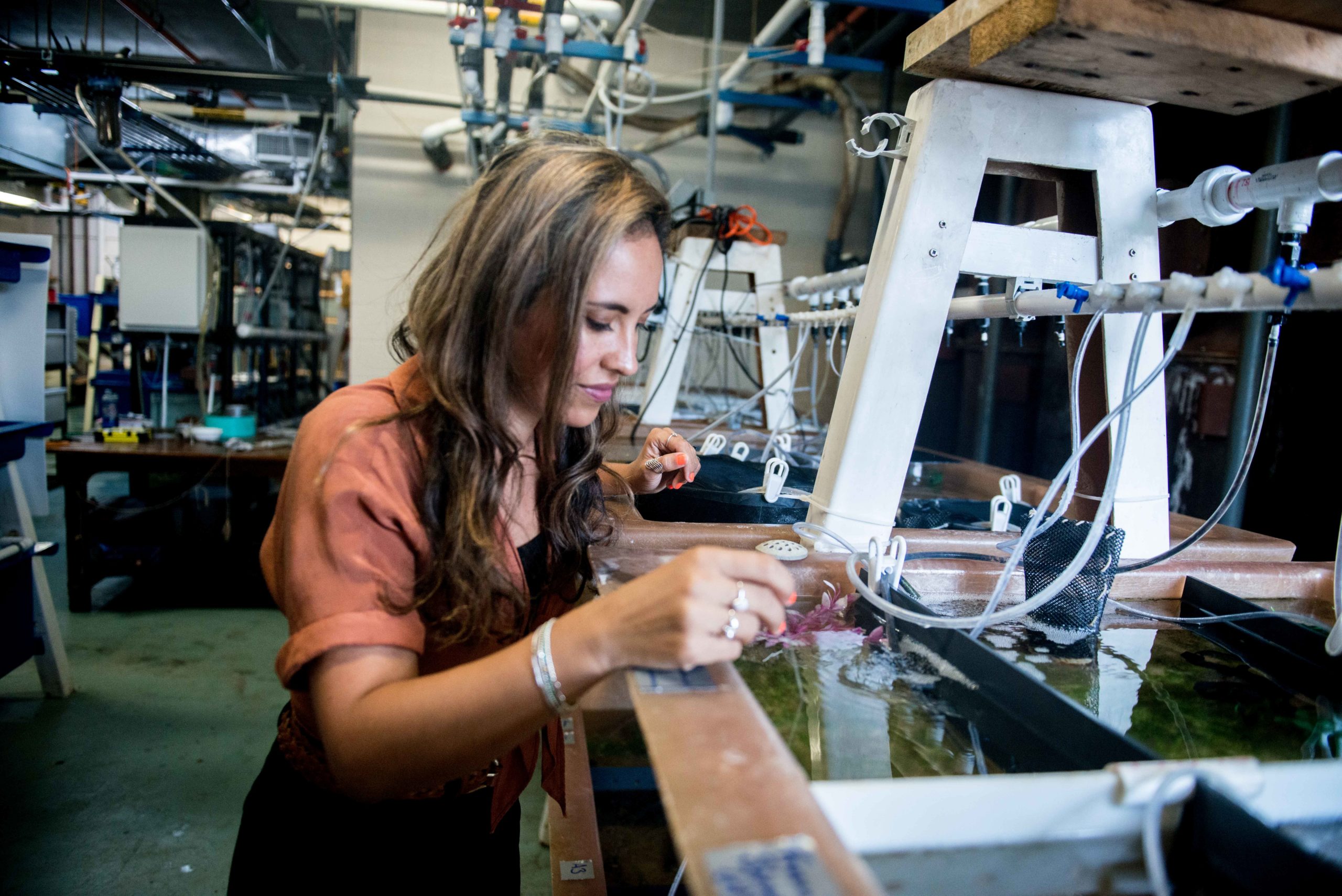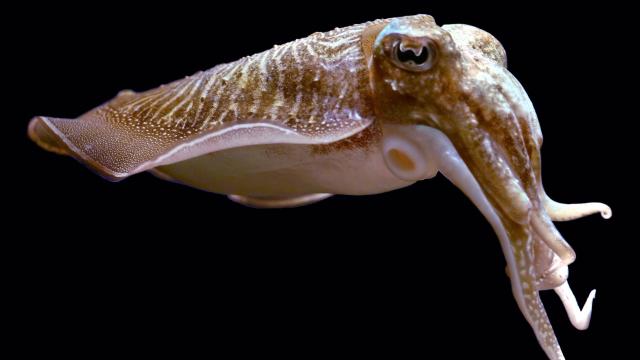Perhaps the most unsung members of the cephalopods, a group that counts octopuses, squid, and nautiluses among their ranks, the cuttlefishes is left with a lot to prove. Recently, a crew of six common cuttlefish (Sepia officinalis) did just that, focusing their sinusoidal pupils and collective 48 arms and 12 tentacles on the task of delayed gratification before dining, for the sake of a more delicious meal.
The cuttlefishes’ test was the project of an international team of researchers seeking to probe cephalopod intelligence, a field less explored than similar lines of inquiry for mammal and bird species. The team’s research was published on Tuesday in the journal Proceedings of the Royal Society B.
[referenced id=”1089415″ url=”https://gizmodo.com.au/2018/02/secrets-of-the-cuttlefishs-uncanny-camouflage-abilities-revealed/” thumb=”https://gizmodo.com.au/wp-content/uploads/2018/02/17/gjzg5ob7zit8tyjygpnm-300×169.jpg” title=”Secrets Of The Cuttlefish’s Uncanny Camouflage Abilities Revealed” excerpt=”Octopus, squid, and cuttlefish can change their skin’s colours, patterns, and textures in ways not seen anywhere else in the animal kingdom. You see what looks to be a clump of seaweed, and then it suddenly springs to life in the form of a retreating cephalopod. The changing of skin…”]
Animal cognition has been a subject of human intrigue at least since Darwin sent shockwaves by establishing an evolutionary connection between humankind and primates. Scientists have been seeking to better understand the limits and range of animal cognition ever since, most famously in the work of Ivan Pavlov and his dogs or B.F. Skinner and his rats. But recent researchers have gone beyond questions of classical conditioning, and focused on dogs’ ability to retain entire word banks for their toys or pigs’ penchant for playing video games.
“Our understanding of why self-control evolved has always been based on evolutionary pressures that are relevant to long-lived social species,” Alexandra Schnell, a comparative psychologist at the University of Cambridge and lead author of the recent paper, said in an email. “Cuttlefish have not experienced the same pressures.”
In the case of the final six adolescent cuttlefish that participated in the study (Mica, Pinto, Demi, Franklin, Jebidiah and Rogelio, as two other cuttlefish dropped out), the task at hand involved choosing between an immediately available piece of raw king prawn or waiting for the possibility of being offered a live grass shrimp to eat, the latter being the more coveted meal. The team studying them found that after training, some cuttlefish were able to wait up to two minutes for the better reward, showing they understood both the implications of holding on a while before taking an action. Those cuttlefish that were particularly patient were also pretty reflexive when the terms of the exercise changed. When the cue for the food reward changed, those patient cephalopods were fastest to adapt.

Cuttlefish aren’t highly social in the way that humans or chimpanzees are, as the latter species tend to live in groups that help drill certain principles of self-control for the sake of the entire group. As a result, it wasn’t certain whether the animals would be so reticent in the face of free food.
“This finding is an extreme example of convergent evolution,” Schnell said. “Cuttlefish have significantly different evolutionary histories from the more commonly studied apes, corvids, and parrots, and yet they have the same cognitive feature.”
Schnell said that the cuttlefish’s self-control could be attributed to its needing to stay still in the wild to remain camouflaged, in contrast with the self-control capacities typically associated with group activity for more social creatures. The animal only breaks from its sedentary hideaway to forage for food, which it does sparingly.
“This doesn’t give us the entire picture and each study only offers one piece of the puzzle,” Schnell said. “We are in need of many more studies before we can make meaningful comparisons between the general intelligence of cuttlefish and large-brained vertebrates.”
